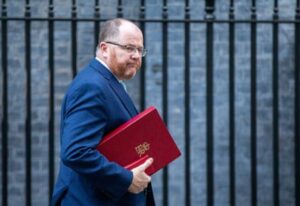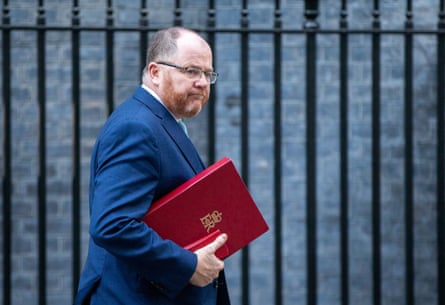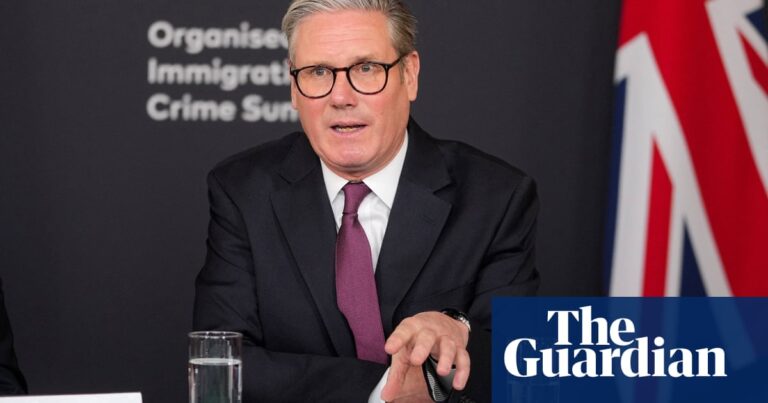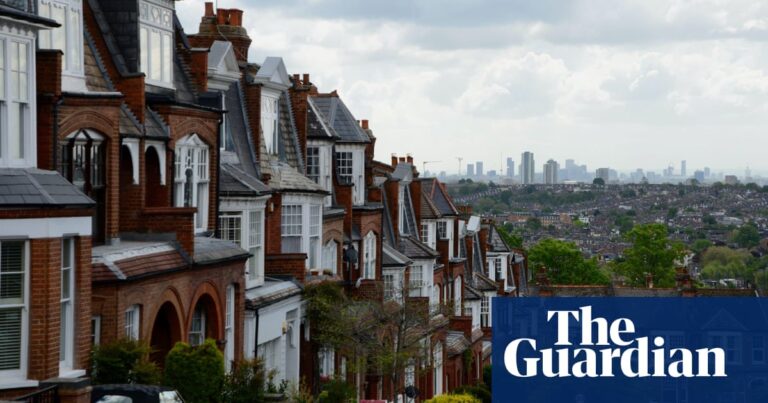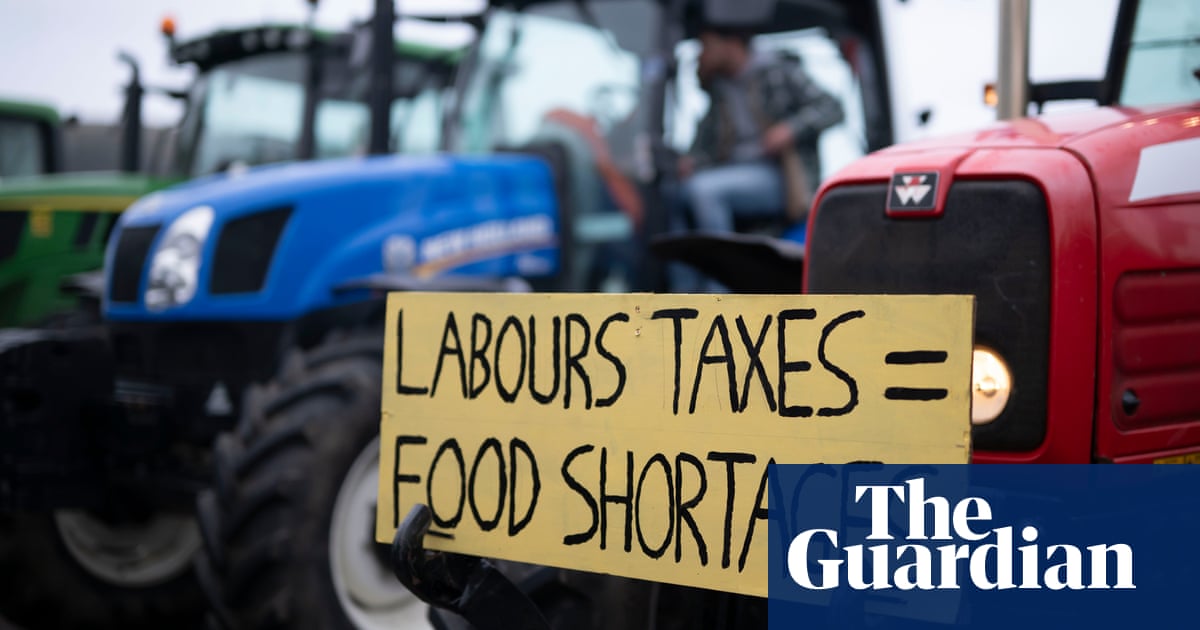
Far-right groups are seeking to hijack a farmers’ protest in London against tax changes introduced by the chancellor, Rachel Reeves.
Extremists, including close associates of Tommy Robinson, have been using social media to urge supporters to turn up at the protest on Tuesday, as farming leaders sought to remind those attending of their responsibilities.
The event is being eyed as a major opportunity for exploitation by the far right, who are seeking to promote Jeremy Clarkson as a hero after he claimed the UK government had a “sinister plan” to “ethnically cleanse” farming communities.
The former presenter has become a meme on far-right social media accounts as activists and extremist influencers applauded his comments. Nick Griffin, the former leader of the British National party, posted a picture of himself in the broadcaster’s Oxfordshire pub.
“Jeremy Clarkson nails it,” said Griffin, as he shared Clarkson’s comments.
Paul Thorpe, a far-right YouTuber, published a video message urging his followers to join the protest, stating: “I’ll be there to support our farming community and I hope as many of you patriots will be there too.”
Activists from the extremist group Patriotic Alternative have been staging stunts for some time in an attempt to piggyback on farmers’ concerns. Their rivals in another far-right group, Homeland, have also sought to drum up support on the back of Clarkson’s comments.
Conspiracy theorists are expected to also be out in force to promote a narrative that there is a globalist plot to control food supplies.
Trouble has marred similar farmers’ protests in Europe, including in the Netherlands where police fired shots at tractors. But the organisers of the protest, a group of farmers who fear the changes brought in by Reeves will decimate agricultural businesses, say they want no troublemakers or political point scoring.
They said: “The organisers remind all attendees of their responsibilities to, not only themselves, but also, the reputation of the farming industry. Trouble will not be tolerated and organisers continue to work closely with the Metropolitan police to ensure the safety of all involved, given the family nature of the event.”
Olly Harrison, who farms cereals near Liverpool, is one of the organisers of the protest and has nothing to do with the far right, nor do the others behind the event. “The event is nonpolitical,” he said. “We have invited representatives of all political parties to speak and we don’t want our event used for political point scoring. We want it focused on the farmers and the troubles we are facing at the moment.”
Andrew Meredith, the editor of Farmers’ Weekly, warned of “the damage one loose-lipped person can do to a cause”, adding: “The organisers of the march have it exactly right in making repeated calls for all participants to uphold the farming industry’s reputation and make this a positive event.”
A debate has been taking place in the farming community about whether Nigel Farage, the leader of Reform UK, should speak. He offered to, but some were worried he would make the event about him and take attention away from the cause.
Tim Farron, the Liberal Democrat environment spokesperson, was considering speaking at the event and said of Farage: “Most problems [farmers] face are Brexit related. He’s done far more damage to them than this government.” Steve Reed, the environment secretary, is understood to have turned down an invitation to attend.
The organisers do not want attention taken away from the issues at hand. Farmers are concerned they will be hit by a tax bill that will eat up their profits and force them to sell; Defra figures show 66% of farms could be hit by a surprise inheritance tax they have not budgeted for, despite Treasury claims the change will only apply to a quarter of farmers.
During the budget Reeves also announced a shock cut to farming subsidies, which are a hangover from the EU, of 79%. Farmers were expecting a more tapered cut: at the top end of the scale, a farmer receiving £62,000 last year was expecting £38,000 this year but will get £7,200.
Source: theguardian.com

